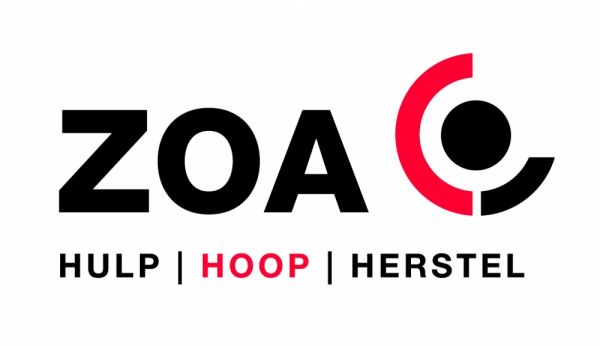Location
7320 AC
ZOA is an international relief and recovery organization supporting vulnerable people affected by violent conflicts and natural disasters in fragile states, by helping them to realize dignified and resilient lives.
ZOA operates in more than 15 countries, in difficult locations where our field staff directly provides assistance to the most vulnerable victims of displacement. The countries in which ZOA is present are Afghanistan, Burundi, DR Congo, Ethiopia, Jordan, Kurdistan Region of Iraq, Liberia, Myanmar, Philippines, South Sudan, Sri Lanka, Sudan, Syria, Uganda and Yemen.
ZOA is active in insecure and volatile regions: serving Syrian refugees in the Middle East, uprooted people in war-torn South Sudan, displaced Yezidis in Northern Iraq and South Sudanese refugees in Ethiopia, to name a few.
Members:
Resources
Displaying 11 - 15 of 18Grant: SNDO-1179:Sustainable Integrated Land Management Solutions (SILMS) (Bilateral)
General
A $198,092 Bilateral grant from SNV-Netherlands Development Organisation to ICRAF for SNDO-1179:Sustainable Integrated Land Management Solutions (SILMS)
Trade Related Natural Resource and Disaster Management in Morocco, Jordan and Oman
General
To promote green growth and US environmentallly sound technologies and practices in Moroco and Environmental Law enforcement water security and sustainable land management in Jordan
Reliable Geo-Information for Land Use Optimalisation Indonesia II
General
The project main objective is to support the Indonesian authorities to accelerate land registration in Indonesia. Thereby helping them to meet their target of capturing and maintaining land information of 65 million individual parcels by 2025.
Sustainable Land Information Management in Vietnam (Part I)
General
The current system of land use and land rights in Vietnam does not utilise the full potential of the available land. Therefore, Vietnam is in the process of revising the Land Law. One of the main envisaged changes is that bigger plots are allowed through land consolidation. Then farmers can develop from being barely subsistence to agricultural entrepreneurs. The Vietnamese government has requested the advice and support from Kadaster. This mission will further analyse the request for support as input for an actual project plan.
UNIPP Technical Secretariat project
General
This project establishes the secretariat of UNIPP. UNIPP will focus on the following key thematic areas for intervention: 1. Legislative review and reform: develop capacities of State institutions to have indigenous peoples’ rights included and recognized within the national legal system, including through constitutional reforms, development of legislation and incorporation at administrative levels both through indigenous specific legislation such as in areas of non-discrimination. 2 Democratic governance and indigenous peoples’ institutions: strengthening indigenous peoples’ institutions and organizational capacity to fully participate in governance and policy processes at local and national levels 3. Access to justice: recognition and strengthening of indigenous customary law and justice systems; and their inclusion within national legal systems. 4. Access to land and ancestral territories: developing and strengthening capacities for land titling, demarcation and use of ancestral territories, including local capacity development initiatives and those aimed at securing greater recognition of indigenous lands. 5. Natural resources and extractive industries: promoting a framework for conflict prevention, consultation, participation, benefit-sharing and dispute resolution. This area will have a special focus on conflict prevention initiatives around ancestral land and use of natural resources, in particular the need to develop capacity of indigenous communities in negotiation skills and dispute resolution in line with international legal instruments.


